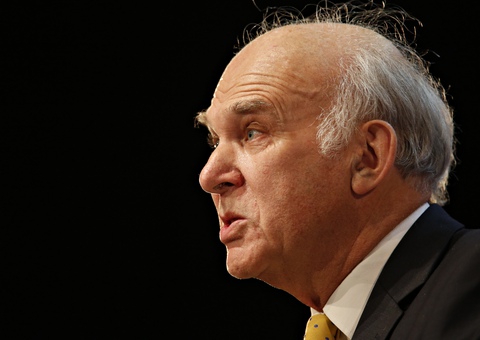The government's plans to raise tuition fees to £6,000 a year will lead to a dramatic fall in the number of students from disadvantaged backgrounds going to university, new research suggests today.
An Ipsos Mori poll found that raising the cost of a degree to £5,000 a year would deter almost half of those from the most deprived backgrounds who would otherwise have gone on to higher education, while raising fees to £7,000 would cut the number by nearly two-thirds.
The government plans to raise the basic threshold for tuition fees at English universities to £6,000 a year, with institutions allowed to charge up to £9,000 in "exceptional circumstances". Students currently pay £3,290 a year.
Mori questioned 2,700 young people aged between 11 and 16 earlier this year and found that among those who would have been likely to go to university, only 68% would still be confident of this if fees went up to £5,000, while if they had to pay £7,000 only 45% would still be keen.
For the poorest students – those with no parents in work – only 55% were prepared to pay fees of £5,000, and just 35% would pay £7,000.
Meanwhile, the Institute for Fiscal Studies is to revise its assessment of government proposals to charge students higher tuition fees because it says the analysis was based on flawed assumptions.
In an assessment published last week, the IFS found that richer graduates would pay less under government plans than they would have done under the system proposed by Lord Browne, the former BP chief executive.
But the IFS said last night that "our modelling was based on an incorrect understanding of the government's proposals". The statement was released after a policy journal published an email from an IFS analyst stating that "key parameters of what the government is proposing have changed, but this has not been made clear in any of their papers".
The IFS said it would soon release an updated version of the same analysis.
Aaron Porter, president of the National Union of Students, said: "Plans to rush through a tripling of tuition fees are based on a dodgy dossier. The numbers do not add up and ministers' claims that their policy will be fair for students, or good for taxpayers, lie in tatters."
A separate study reveals today that even at current levels, student debt is leading more final-year students to take on part-time jobs during term-time and to work longer hours.
Some 78% worked at some point in their last year and almost two-thirds (62%) of those were doing so to avoid debt, said the Higher Education Careers Services Unit (Hecsu). Women students worked an average of 12 hours a week compared with eight in their first year, while men worked 13 hours, five hours more than in their first year.
As a result, students were likely to have lower grade expectations, be less involved in extra-curricular activities and less satisfied with their course, according to the Futuretrack research, a study of almost 50,000 students from university application until they get their first job. Jane Artess, research director at Hecsu, said: "We expected students to cut down the time they spend working in their final year, but this is not the case. Not only are we finding that these students are more likely to work than in their first year, but the hours they spend have also increased. Already we have found that this is having a detrimental effect on their university experience, a situation that isn't likely to improve for this year's finalists as debt continues to stack up."
Professor Kate Purcell, who leads Futuretrack at Warwick University's institute for employment research, said: "It is too early in the study to find out the impact of working on academic achievements, but we can say that fundamental aspects of student life are affected, with those working long hours more likely to be dissatisfied with their courses, to predict lower grades for themselves and participate less in extra-curricular activities."












